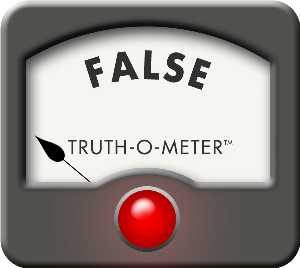 We don’t know who is writing the headlines at the Denver Post these days, there’s not even a byline on this article and it’s just confusing as Hell.
We don’t know who is writing the headlines at the Denver Post these days, there’s not even a byline on this article and it’s just confusing as Hell.
Cory Gardner doesn’t deny blocking a bipartisan effort to improve gun-purchase background checks in TV interview
Sen. Gardner was on CBS’s “Face the Nation” Sunday to talk about North Korea, but in the last few seconds the host asked him about a gun background check bill sponsored by a Republican senator and asked Gardner if he had put a hold on the bill — a formal procedure that blocks legislation from ever going to the Senate floor.
The point of the Post story is Gardner did not confirm he put a hold on the bill, insinuating that it means he has a hold on the bill.
According to the transcript from the show, Gardner said this, emphasis added:
SEN. CORY GARDNER: This bill can come to the floor and we will continue to work through an amendment process and I hope that we can fix those amendments.
MARGARET BRENNAN: After you fix this bill you will allow it to go to the floor but not before this?
SEN. CORY GARDNER: Well I think if we can have an, an amendment process that works to fix due process concerns real constitutional issues, then I hope that’s something that we can do. I hope that people who support this bill are interested, like all of us, in making sure we’re protecting the American people from harm.
If there was a hold on the bill, it would not be able to come to the floor for a vote. That’s what a hold does. The amendment process can happen in committee or on the floor, so as we read it, Gardner hasn’t blocked it, he just wants to amend some due process issues once it reaches the floor.
We repeat, “The bill can come to the floor” means there is no hold on the bill by Gardner.
The bill would essentially require states and federal agencies to share more of their records with the National Instant Criminal Background Check System (NICS).
The bill sponsored by Republican Sen. John Cornyn is called Fix NICS Act of 2017, and is cosponsored by 49 senators on both sides of the aisle, including Republican Majority Leader Mitch McConnell and Democrat U.S. Sen. Michael Bennet.
To read more about what the bill does, how it affects states, and who supports it, click here.
